11 Consumer Stocks for Inflationary Times
Consumer spending may be cooling due to inflation, but these stocks should deliver the goods to investors.


Profit and prosper with the best of Kiplinger's advice on investing, taxes, retirement, personal finance and much more. Delivered daily. Enter your email in the box and click Sign Me Up.
You are now subscribed
Your newsletter sign-up was successful
Want to add more newsletters?

Delivered daily
Kiplinger Today
Profit and prosper with the best of Kiplinger's advice on investing, taxes, retirement, personal finance and much more delivered daily. Smart money moves start here.

Sent five days a week
Kiplinger A Step Ahead
Get practical help to make better financial decisions in your everyday life, from spending to savings on top deals.

Delivered daily
Kiplinger Closing Bell
Get today's biggest financial and investing headlines delivered to your inbox every day the U.S. stock market is open.

Sent twice a week
Kiplinger Adviser Intel
Financial pros across the country share best practices and fresh tactics to preserve and grow your wealth.

Delivered weekly
Kiplinger Tax Tips
Trim your federal and state tax bills with practical tax-planning and tax-cutting strategies.

Sent twice a week
Kiplinger Retirement Tips
Your twice-a-week guide to planning and enjoying a financially secure and richly rewarding retirement

Sent bimonthly.
Kiplinger Adviser Angle
Insights for advisers, wealth managers and other financial professionals.

Sent twice a week
Kiplinger Investing Weekly
Your twice-a-week roundup of promising stocks, funds, companies and industries you should consider, ones you should avoid, and why.

Sent weekly for six weeks
Kiplinger Invest for Retirement
Your step-by-step six-part series on how to invest for retirement, from devising a successful strategy to exactly which investments to choose.
U.S. inflation hit a four-decade peak in June, with prices rising roughly 9.1% according to the U.S. Bureau of Labor Statistics. That has understandably rattled investors who are worried about cutbacks in spending as Americans look to fend off the pain at the gas pump and grocery aisle.
However, there are still many consumer stocks that have a lot to offer despite this period of upheaval. Wall Street analysts have seen the same inflation data that we all have, and yet these experts are quite bullish on a select group of companies right now. That's because they are closely monitoring financial data on individual companies, even as they are watching consumer price data.
The following 11 consumer-related stocks all get top marks from these experts right now. Some companies have seen their share prices rise in a down market, a few seem like bargains after bearish investors overreacted and sold off shares sharply, and others have long-term growth outlooks that make them attractive if you can look past short-term disruptions.
Depending on your personal investing strategy, one of these 11 consumer stocks may be worth an investment even as we face uncertainty in 2022.
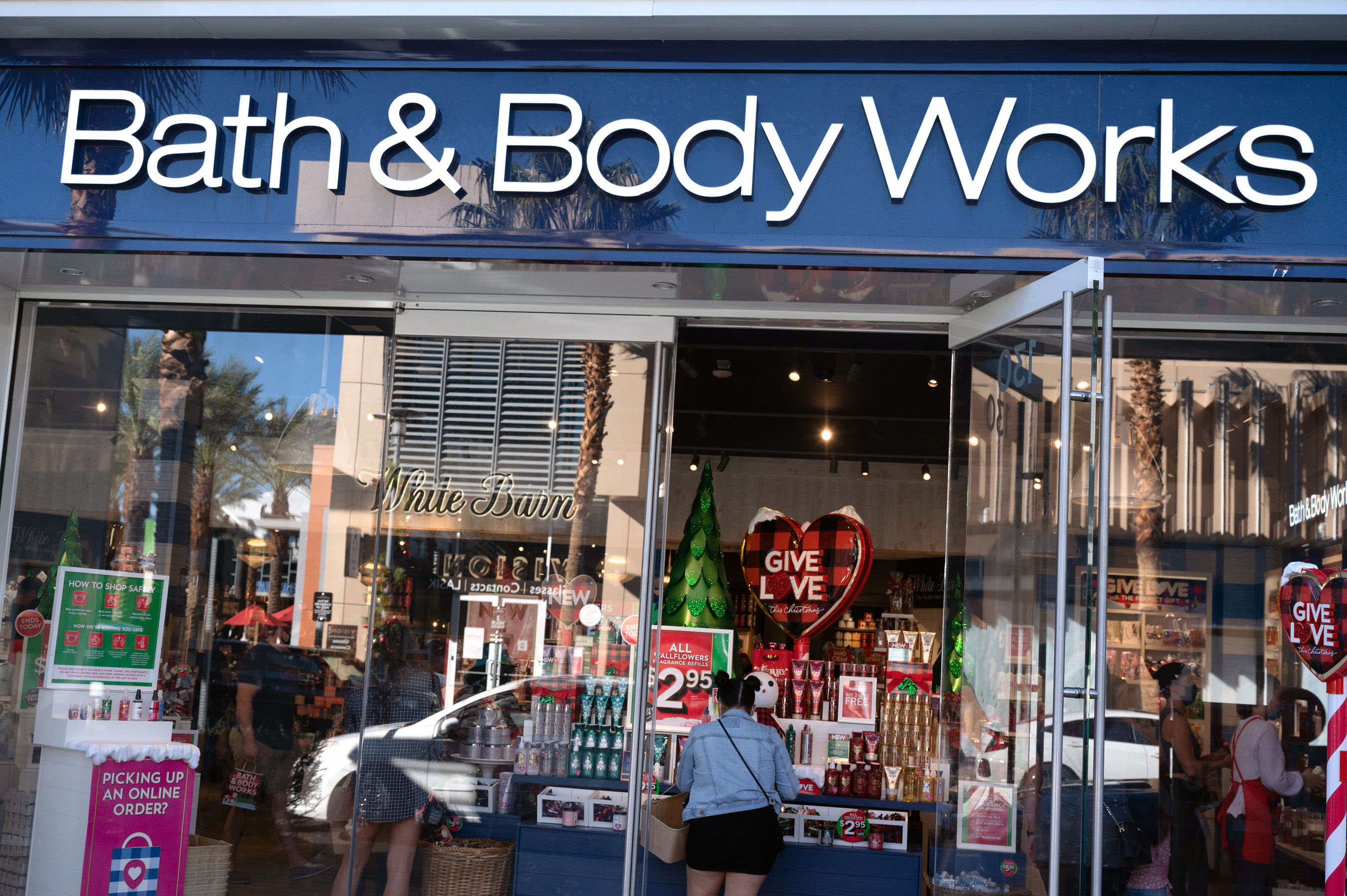
Bath & Body Works, Inc. (BBWI)
In mid-2021, consumer conglomerate L Brands split off its Bath & Body Works (BBWI) unit to separate it from Victoria's Secret & Co (VSCO). That initially benefitted BBWI stock as shares rallied strongly through the end of last year; however, BBWI stock is now down about 50% from its 52-week high thanks to a risk-off environment lately.
Still, the long-term outlook is bright for this newly focused stock. As a personal care products company, Bath & Body Works should enjoy more consistent sales than clear-cut discretionary plays that consumers can abandon in tough economies, such as entertainment. And when it comes to personal care products, customers tend to be brand loyal instead of shopping around to pinch pennies on inferior products or new items that do not fit their personal tastes and routines.
Analysts at Raymond James just put a Strong Buy rating on BBWI stock in July, with a mammoth $45 price target that is nearly double current share prices. They argue that as comparable sales normalize in the wake of the spinoff and as supply chain and shopping trends get back to pre-pandemic levels, this personal-care retailer has much brighter days ahead. Separately, Wells Fargo and Piper Sandler both reiterated Overweight ratings in recent weeks as a sign of Wall Street optimism for this consumer stock.
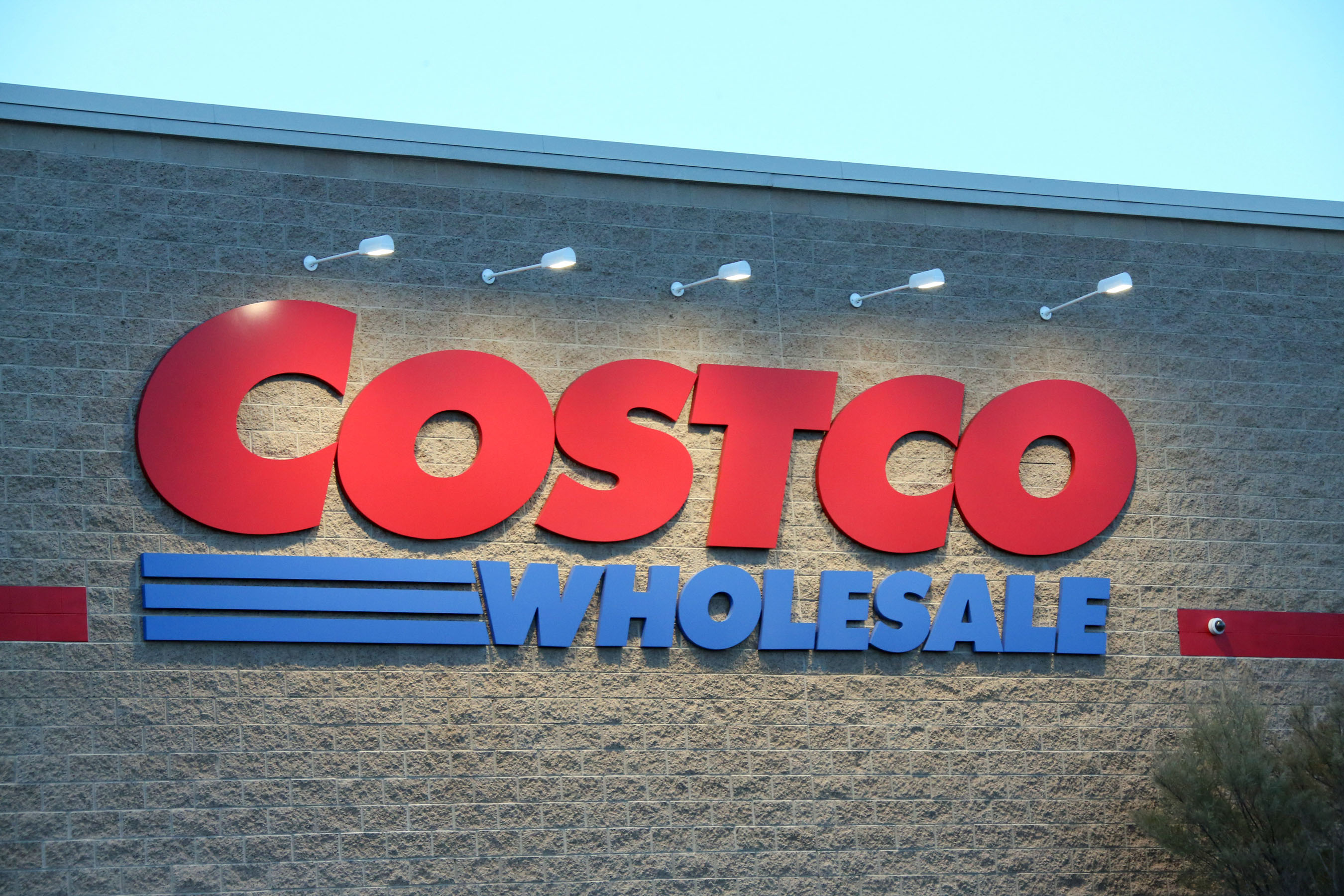
Costco Wholesale Corp. (COST)
Costco Wholesale Corp. (COST) enjoys an almost cult-like following among U.S. consumers. From its deep discounts on bulk products and gasoline to its popular private-label brand Kirkland, ask a longtime member of COST why they prefer to shop there and you will surely get an earful.
This loyalty really matters in a time of rising prices, because consumers are starting to be more judicious about their spending.
COST stock was already on an uptrend after it ended its fiscal 2021 in September with a net sales growth of almost 18%. And looking forward, fiscal 2022 is expected to see growth of between 5% to 10% in sales on top of that. But the real story is one of rising profitability, as earnings per share are forecast to jump from $11.09 last year to $13.06 this year and $14.49 next year. That is an expansion of 18% and 11%, respectively.
What's even more compelling is that Costco’s membership model has been proven to reduce "shrinkage" (or loss because of shoplifting, for example) and adds a reliable source of cash flow. With 1.3 million members paying $60 or more a pop, this company has a firm foundation that will help it pay the bills regardless of any short-term disruptions in sales.
Jeffries recently maintained its Buy rating on COST stock in June, with Raymond James, Truist and Baird all offering similar bullish ratings in May.
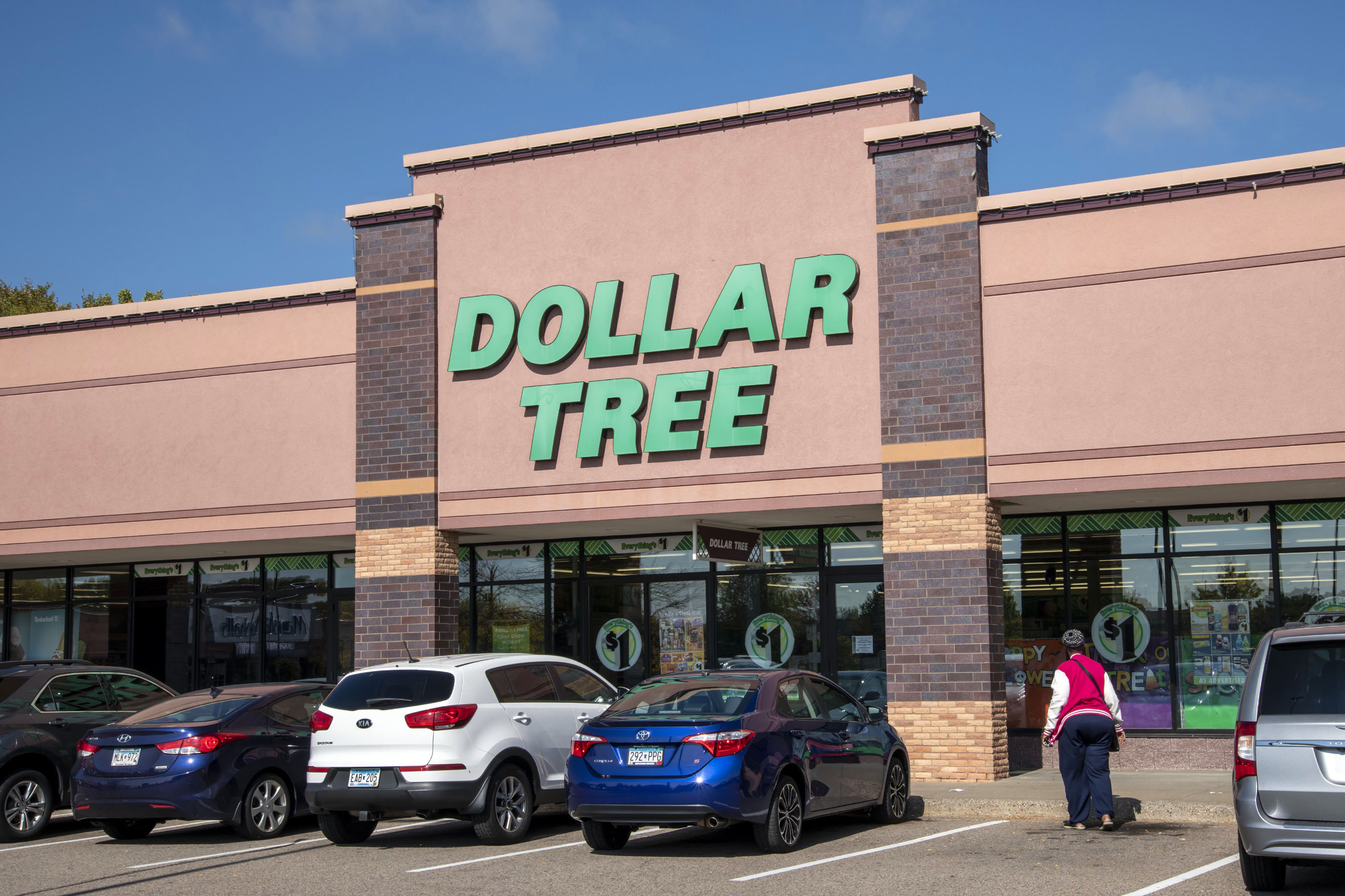
Dollar Tree, Inc. (DLTR)
It's reductive, but it's true – when times get tough, discounters like Dollar Tree, Inc. (DLTR) are safe havens in the consumer sector for investors who want to avoid the fallout of a shift in consumer spending.
In 2015, Dollar Tree and Family Dollar joined forces to create one of the biggest staples discounters out there. And with locations that cater to urban customers via strip malls or underserved communities that may not support a full-service supercenter from Walmart (WMT), a Dollar Tree store is often one of the few places where lower-income Americans can get what they need for their pantries, closets and medicine cabinets.
As a result, DLTR is riding high even while consumer spending disruption is causing many stocks to roll back their forecasts. In the current fiscal year as well as next year, revenue is set to grow by 5% to 10%. More impressive is the earnings per share growth, however, with EPS set to leap from $5.80 last year to a whopping $8.14 this fiscal year if forecasts hold. That's more than a 40% increase in profits.
Wall Street loves to see numbers like this, and the top ratings from analysts are proof. Citigroup, BMO, Deutsche Bank, Morgan Stanley and Barclays are just a few of the leading investment firms that have issued Buy or similar ratings on this stock since May.

LCI Industries (LCII)
In the wake of the COVID-19 pandemic, there have been a few big shifts in American consumer culture–and some of the big ones are a reconnection with the great outdoors and a desire to get out of the city.
This trend has been a boon for LCI Industries (LCII), a firm that manufactures and maintains recreational vehicles (RVs). It's not just these big-ticket vehicles either, which run buyers six figures apiece. It is also all the after-market gear that provides big creature comforts for folks looking to get away: portable patio furniture, awnings, premium mattresses, televisions and sound systems.
In fiscal 2022, LCII is riding recent tailwinds to a projected revenue growth rate of 25%. Earnings are growing even faster at a roughly 60% growth rate. And then there's the generous 3.6% dividend on top of the potential for share appreciation driven by these fundamentals, too.
There's clearly risk here, as there is for all consumer stocks in 2022. However, RVs are decidedly a luxury purchase given the big price tags, so they tend to see more resilient sales than compact cars or other vehicles in a downturn. That should add some measure of stability, even amid a challenging economic outlook.
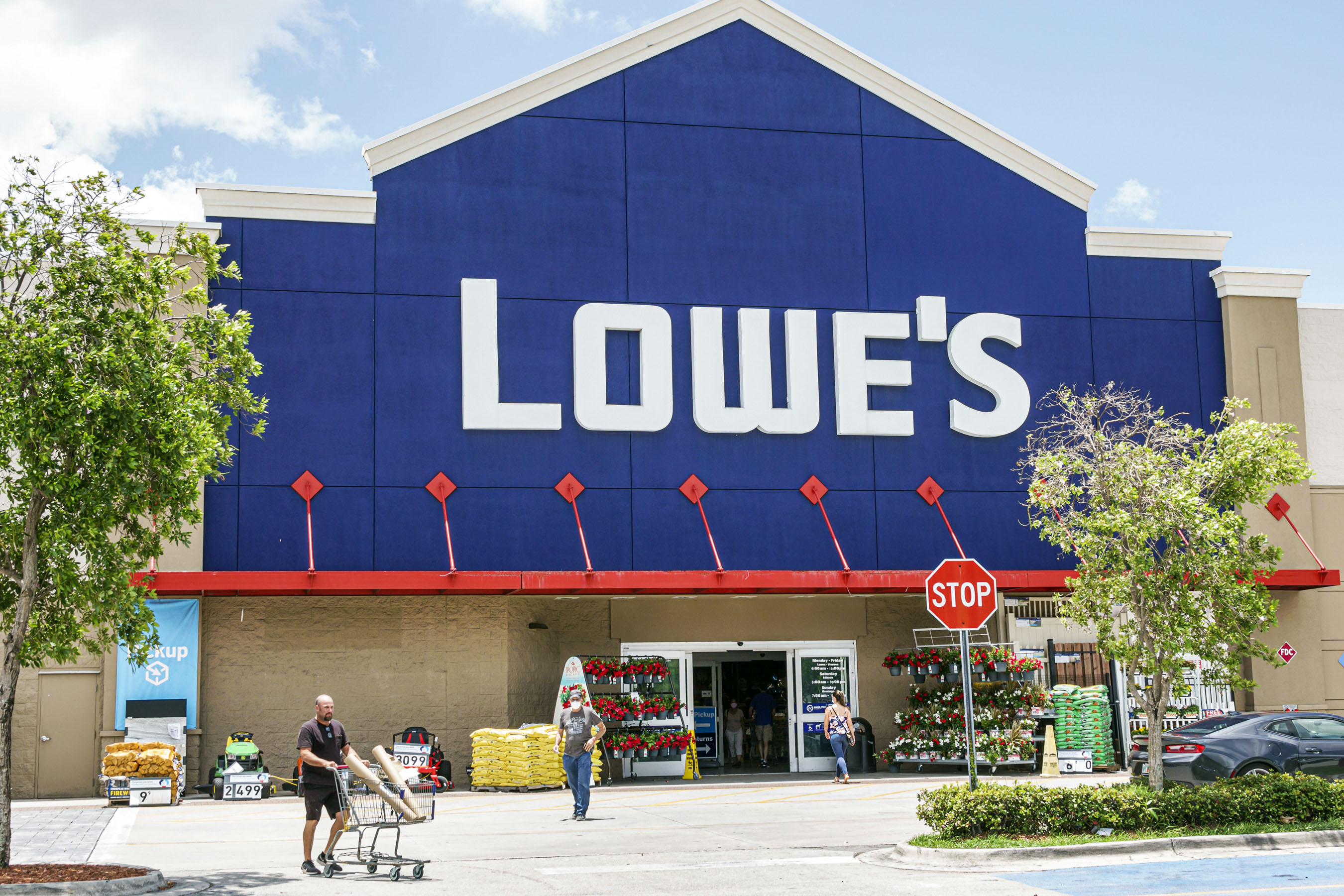
Lowe's Companies Inc. (LOW)
When it comes to home improvement retailers, there's pretty much a duopoly in the U.S. right now between Home Depot (HD) and its competitor Lowe's (LOW). But when it comes to Wall Street expectations and bullish forecasts, there's really only one stock to consider – with LOW the clear winner.
Both companies are largely stagnant, with mature domestic operations growing at a single-digit pace for sales and earnings. However, Lowe's boasts a forward price-to-earnings ratio of less than 14 and a price-to-sales of about 1.3 while HD has a forward price-to-earnings ratio of about 18 and a price-to-sales ratio of 2.0. That makes LOW more attractive from a valuation perspective.
Furthermore, Lowe's has greater support among Wall Street analysts. Wells Fargo recently reiterated its Overweight rating in June, and Truist, Davidson and Jefferies all maintained Buy or better recommendations in May. The consensus price target of about $240 per share predicts about a 30% upside, and presents one of the best opportunities among consumer stocks right now.
Clearly, there is uncertainty around consumer spending trends. The housing market softened in July, but overall inventory is far below demand. And that means LOW could be a good investment for those who aren't afraid of consumer-oriented plays despite broader volatility.

MercadoLibre, Inc. (MELI)
As one-time darling Amazon.com (AMZN) has crashed and burned over the last several months, many e-commerce plays have been caught up in the negativity, too. However, fast-growing overseas retailer MercadoLibre (MELI) remains highly rated and continues to offer a great long-term outlook despite this volatility.
MELI is often referred to as the Amazon of Latin America, and for good reason. It operates a consumer-focused internet marketplace that dominates the most populous and lucrative regions in the area, including thriving city centers in Brazil and Argentina. Thanks to its rapid expansion, Wall Street is expecting phenomenal revenue growth of nearly 50% this fiscal year and another 30% expansion in FY2023. Profitability is surging too, with consensus forecasts for earnings to grow five-fold in fiscal 2022.
To support its maturing e-commerce operations, MercadoLibre is also branching out into other long-term technology solutions including mobile payments. And with Amazon on its heels, worried more about weathering the storm than putting the screws to this smaller competitor, MELI is set up to shine in the months and years to come even if shares haven't done particularly well in the recent past.
Wall Street's outlook is bullish, with New Street Research, Citi, Goldman, Credit Suisse and others all rating the stock Buy or better in the last several months despite broader volatility. That bodes well for investors who can look past the recent headlines and seize the long-term opportunity in this consumer stock.

MillerKnoll, Inc. (MLKN)
Though not exactly a brand familiar to most consumers, MillerKnoll, Inc. (MLKN) operates a furnishings company that sells a host of residential storage solutions and office desks and chairs under brands that include Knoll, HermanMiller, Edelman and Holly Hunt.
MLKN stock was hit hard over the last year or two thanks to the impact of the pandemic and supply chain disruptions. However, the company is on the upswing as measured by its fundamentals; at the end of June, the Michigan-based company reported strong sales growth of 77% over the prior year, and margins that jumped 230 basis points.
Looking forward, the company continues to realize big cost savings and synergies in the wake of the $1.8 billion acquisition of design brand Knoll in 2021. The recovering sales will align very well with this strategic restructuring and should continue to drive shareholder value in the long term.
With a consensus price target of almost $50 right now, Wall Street analysts are projecting shares to nearly double if projections hold. The icing on the cake is a 2.8% dividend that is only about one-third of projected earnings. That means this payout isn't just sustainable, but ripe for future increases down the road.

Nike Inc. (NKE)
As one of the most dominant consumer brands on the planet, Nike Inc. (NKE) clearly has staying power. But beyond its impressive wholesale footwear and sports apparel businesses, it is increasingly proving itself to be a force in direct-to-consume sales in the wake of the pandemic – cutting out middlemen to reap bigger margins, keep inflation at bay and deliver shareholder value.
In fact, the sportswear giant has spent the better part of four years cutting the accounts of its retail partners to have a better hold on its distribution and sales channels – with wholesale accounts declining by as much as 50%, according to some reports, while sales have marched ever higher.
Although COVID-19 restrictions in China have impacted the company via supply chain disruptions and disappointing international sales results, the company is definitely looking up as these situations start to normalize. Right now, Wall Street is forecasting a roughly 10% revenue expansion both this fiscal year and next year.
The analyst community continues to rate NKE stock highly; Goldman, Barclays, Cowen, Deutsche Bank, Wedbush and Guggenheim all have reiterated Buy or better recommendations on this top consumer stock since late June. That kind of consensus support is a tremendous vote of confidence for shareholders.

Patrick Industries, Inc. (PATK)
Specialty manufacturer Patrick Industries, Inc. (PATK) is a mid-cap stock most investors haven't heard of. That's because it doesn't have any directly consumer-facing operations, instead providing a host of materials and products to the marine industry, manufactured home companies and various outdoor and camping product companies.
As with previously mentioned LCI Industries, outdoor recreation is a great business to be in after the pandemic. Consider that everyone who ran out and purchased a boat during 2020 and 2021 is now a prospective customer of PATK’s Tumac brand, which makes waterproof covers, or its SeaDek flooring and boat dock unit. And anyone who bought a new or used RV may now be in the market for its premium Williamsburg captain's chairs, couches and décor.
These are niche products, to be sure, but PATK is a dominant company in this particular niche. And judging by its roughly 20% revenue growth that's projected this year, it has a lot of growth still ahead of it.
Both MKM and Truist initiated coverage recently with Buy recommendations, and Patrick Industries remains among the most highly-rated stocks on Wall Street right now.
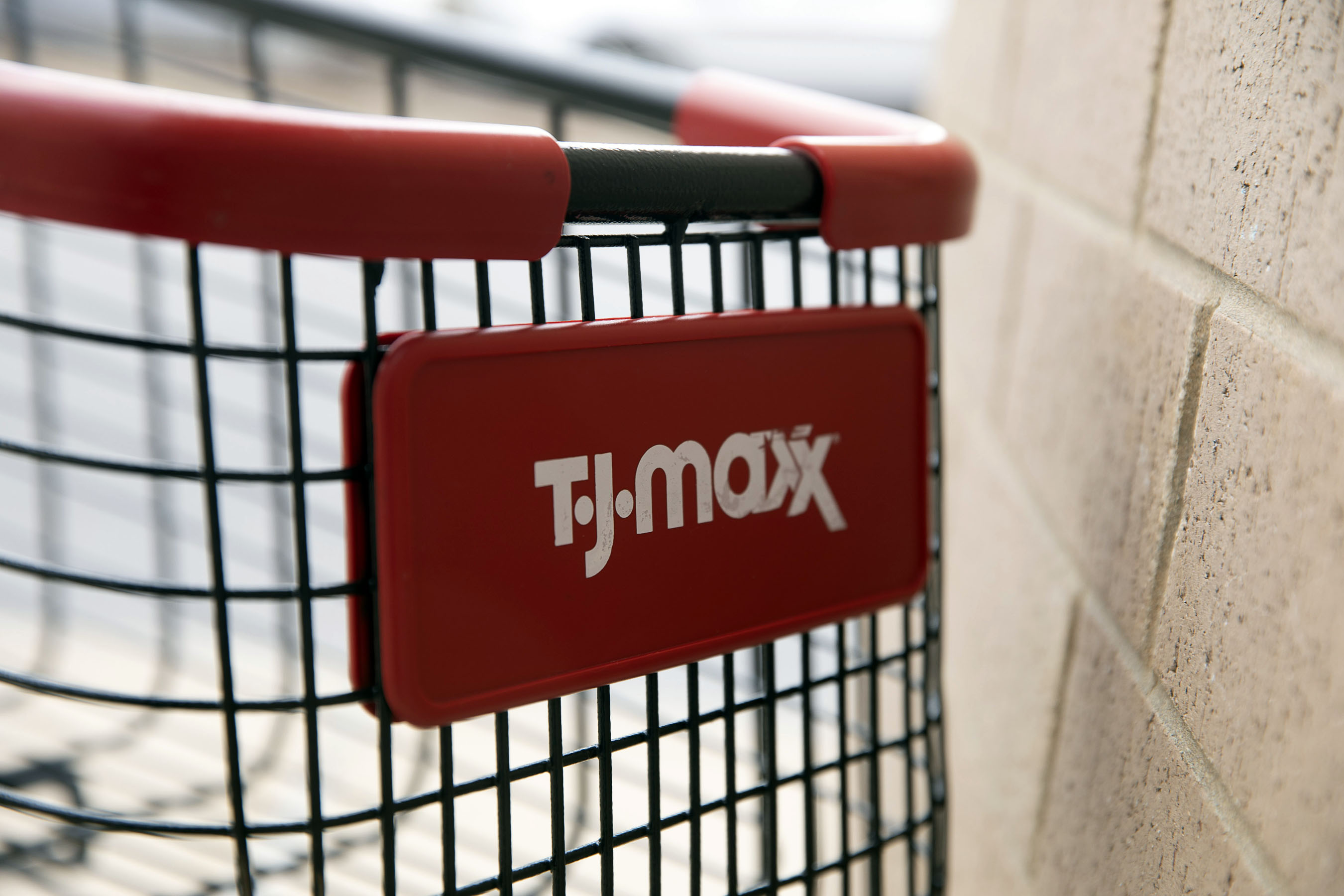
TJX Companies, Inc. (TJX)
Apparel and home fashions retailers HomeGoods, TJ Maxx and Marshalls all fall under the banner of consumer stock TJX Companies, Inc. (TJX). That makes this company quite sensitive to household spending trends, but based on bullish Wall Street analysis lately, it seems that this is a stock that could be in store for big-time returns after the dust settles.
At the beginning of 2022, TJX operated about 3,500 stores: 1,280 or so T.J. Maxx locations, 1,150 Marshalls and 850 HomeGoods stores. Up until a few years ago, the company was fairly reluctant to enter e-commerce sales channels and instead continued to rely almost wholly on brick-and-mortar business.
That changed in 2020 thanks to the pandemic, and it has not always been an easy transition. But now that the company has fully embraced the digital future, things are looking bright despite a generally gloomy consumer outlook on Wall Street. TJX is projecting high single-digit growth both this year and next, with margins expanding thanks to e-commerce opportunities and pricing power.
Morgan Stanley, Baird, Credit Suisse, JPMorgan and others all reiterated their "buy" rating on the company after a very impressive May earnings report that included higher-than-expected forecasts for the full year even as other big box brands like Walmart (WMT) missed the mark. This bodes well for future performance, making this a top consumer stock in a difficult market.

Tapestry, Inc. (TPR)
Luxury brands parent Tapestry, Inc. (TPR) is the firm behind Coach, Kate Spade, and Stuart Weitzman products and apparel. Product lines include handbags, fashion accessories, jewelry, eyewear and fragrances for sale at department stores. The company also operates nearly 2,000 retail locations that sell these in-demand goods directly to consumers.
This powerful brand family, along with the pricing power that comes with high-quality and luxurious offerings, has allowed Tapestry to weather a rocky environment better than most. Specifically, TPR is projecting 15% to 20% growth in the top line this year even as inflationary pressures and cutbacks take their toll on other consumer stocks. Additionally, strong international sales – including in mainland China, which is about a year behind the U.S. and Europe in the re-opening of its consumer-focused economy after COVID-19 – will allow for opportunities that other wholly domestic consumer stocks don't enjoy.
Thus far in 2022, Tapestry has been able to raise prices to offset inflation on raw materials without impacting demand, growing sales across all three of its brand segments and through its e-commerce operations. And with a reliable dividend yield of about 3% on top of all that, it's hard to overlook this top consumer stock.
That's probably why Wall Street rates TPR so highly, with Wells Fargo reiterating its Overweight rating in July, and Jeffries upgrading the stock in June.
Profit and prosper with the best of Kiplinger's advice on investing, taxes, retirement, personal finance and much more. Delivered daily. Enter your email in the box and click Sign Me Up.

Jeff Reeves writes about equity markets and exchange-traded funds for Kiplinger. A veteran journalist with extensive capital markets experience, Jeff has written about Wall Street and investing since 2008. His work has appeared in numerous respected finance outlets, including CNBC, the Fox Business Network, the Wall Street Journal digital network, USA Today and CNN Money.
-
 Dow Adds 1,206 Points to Top 50,000: Stock Market Today
Dow Adds 1,206 Points to Top 50,000: Stock Market TodayThe S&P 500 and Nasdaq also had strong finishes to a volatile week, with beaten-down tech stocks outperforming.
-
 Ask the Tax Editor: Federal Income Tax Deductions
Ask the Tax Editor: Federal Income Tax DeductionsAsk the Editor In this week's Ask the Editor Q&A, Joy Taylor answers questions on federal income tax deductions
-
 States With No-Fault Car Insurance Laws (and How No-Fault Car Insurance Works)
States With No-Fault Car Insurance Laws (and How No-Fault Car Insurance Works)A breakdown of the confusing rules around no-fault car insurance in every state where it exists.
-
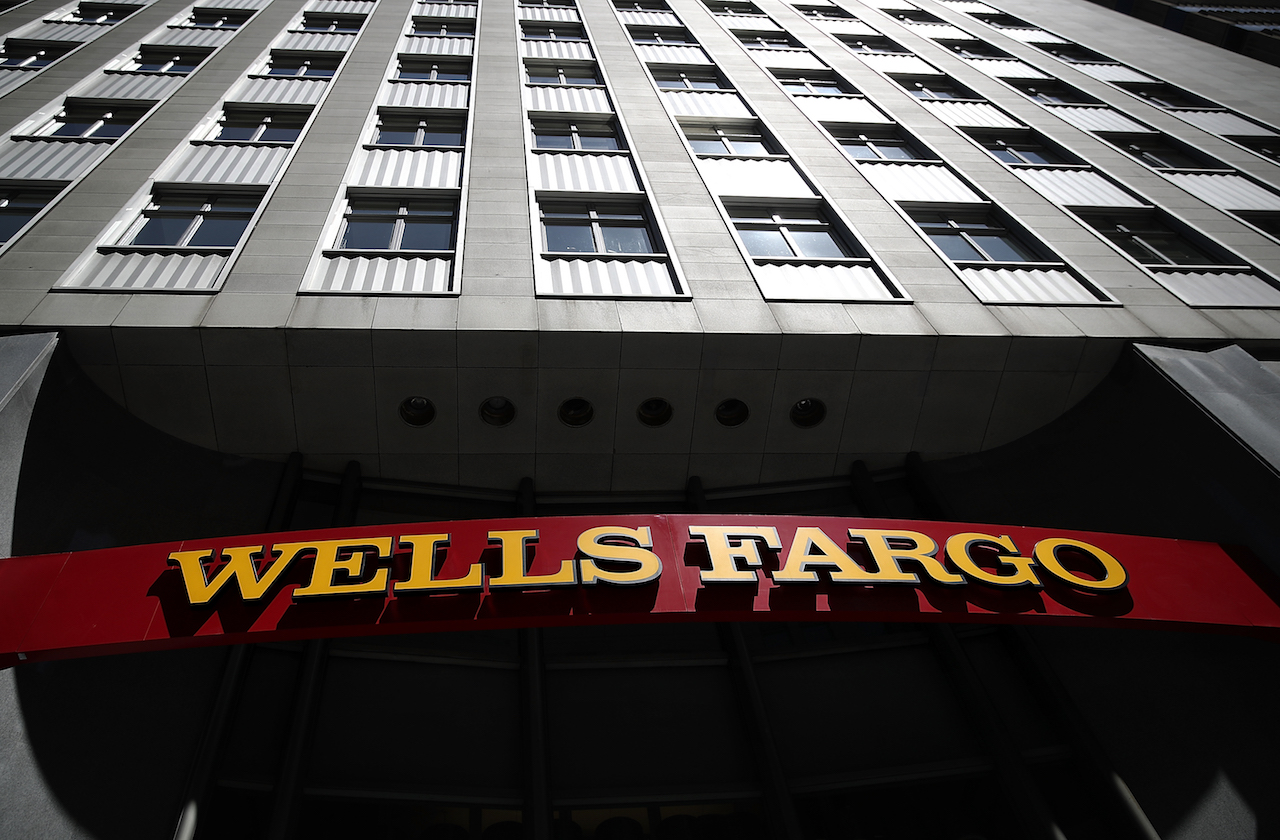 Why Wells Fargo's Revenue Miss Isn't Worrying Wall Street
Why Wells Fargo's Revenue Miss Isn't Worrying Wall StreetWells Fargo is one of the best S&P 500 stocks Wednesday even after the big bank's top-line miss. Here's what you need to know.
-
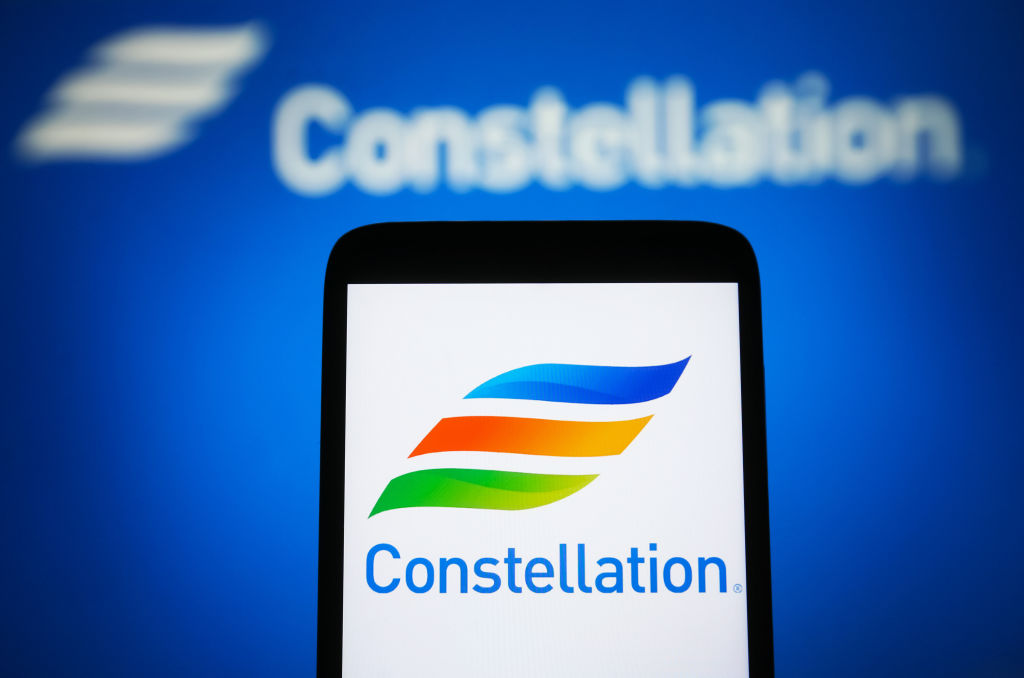 Constellation Energy Stock Soars on Its $26 Billion Buy. Here's Why Wall Street Likes the Deal
Constellation Energy Stock Soars on Its $26 Billion Buy. Here's Why Wall Street Likes the DealConstellation Energy is one of the best S&P 500 stocks Friday after the utility said it will buy Calpine in a cash-and-stock deal valued at $26 billion.
-
 The 24 Cheapest Places To Retire in the US
The 24 Cheapest Places To Retire in the USWhen you're trying to balance a fixed income with an enjoyable retirement, the cost of living is a crucial factor to consider. Is your city the best?
-
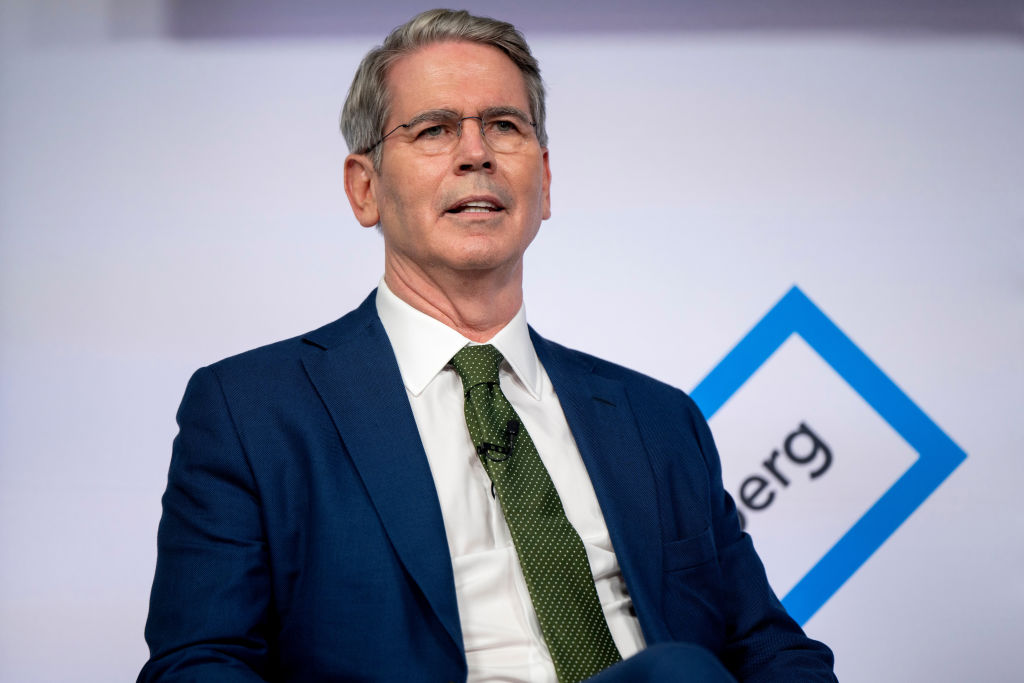 What Scott Bessent's Treasury Secretary Nomination Means for Investors
What Scott Bessent's Treasury Secretary Nomination Means for InvestorsMarkets are reacting positively to Trump's nomination of Scott Bessent for Treasury secretary. Here's why.
-
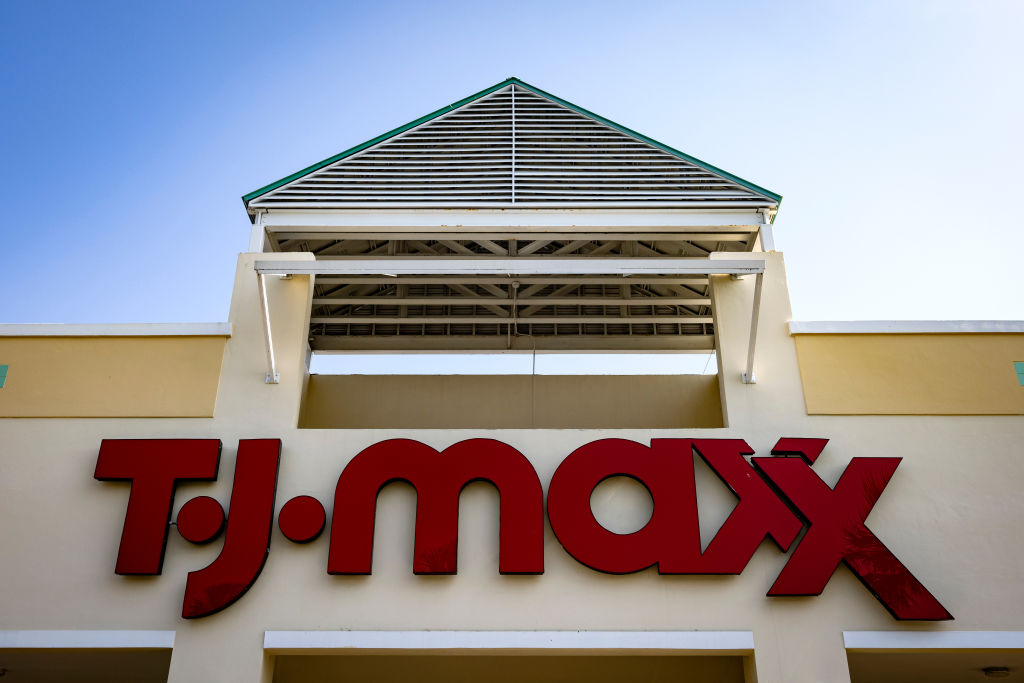 TJX Stock: Wall Street Stays Bullish After Earnings
TJX Stock: Wall Street Stays Bullish After EarningsTJX stock is trading lower Wednesday despite the TJ Maxx owner's beat-and-raise quarter, but analysts aren't worried. Here's why.
-
 Cisco Stock: Why Wall Street Is Bullish After Earnings
Cisco Stock: Why Wall Street Is Bullish After EarningsCisco stock is lower Thursday despite the tech giant's beat-and-raise quarter, but analysts aren't concerned. Here's what you need to know.
-
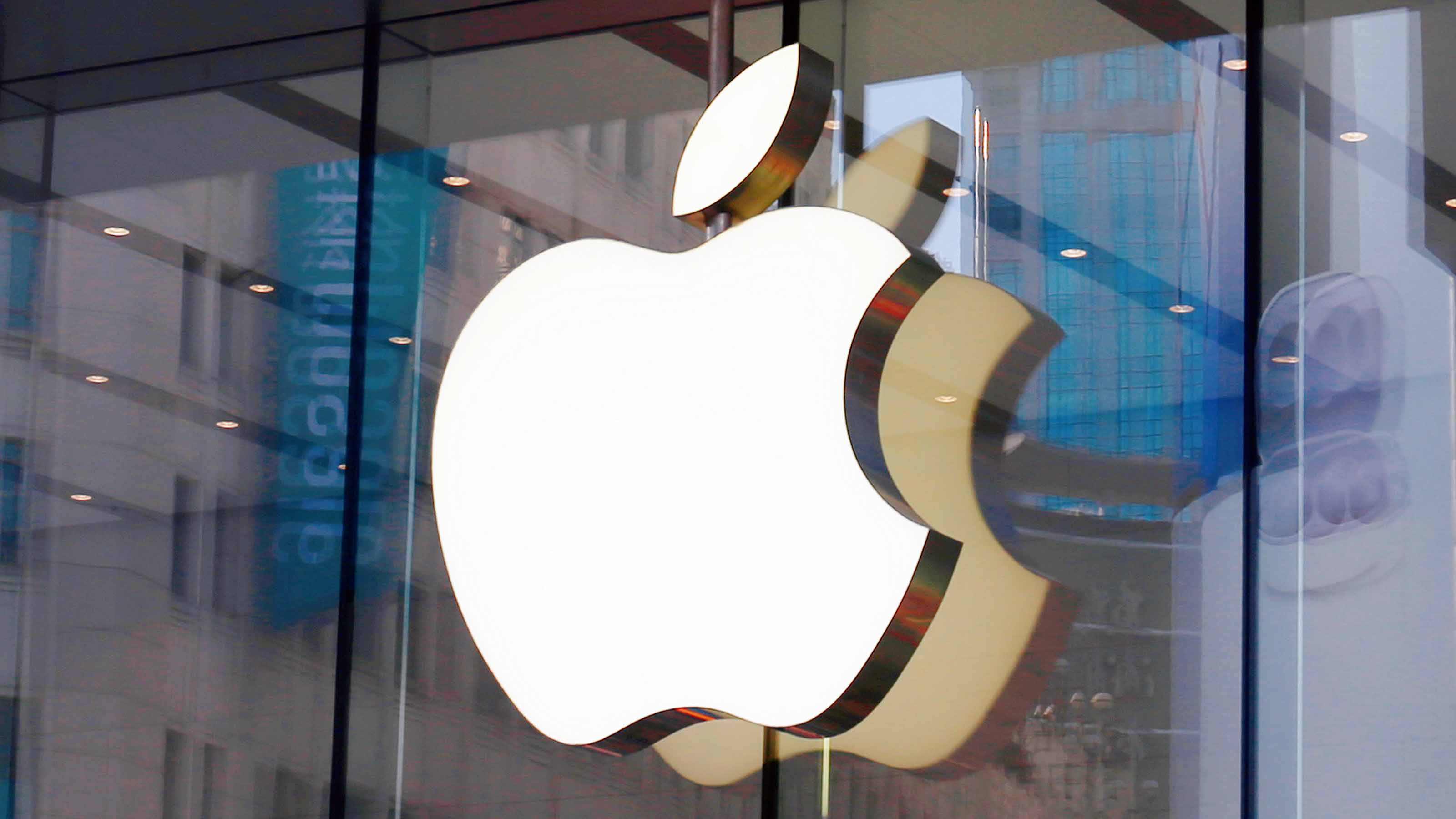 Apple Stock Slips After Earnings. Wall Street Isn't Worried
Apple Stock Slips After Earnings. Wall Street Isn't WorriedApple stock is trading lower Friday despite the iPhone maker beating expectations for its fiscal fourth quarter, but analysts are still bullish.
-
 Tesla's Robotaxi Event: What Wall Street Expects
Tesla's Robotaxi Event: What Wall Street ExpectsTesla’s robotaxi event kicks off next week. Here’s what Wall Street expects to see and how analysts feel about the stock heading into the event.
